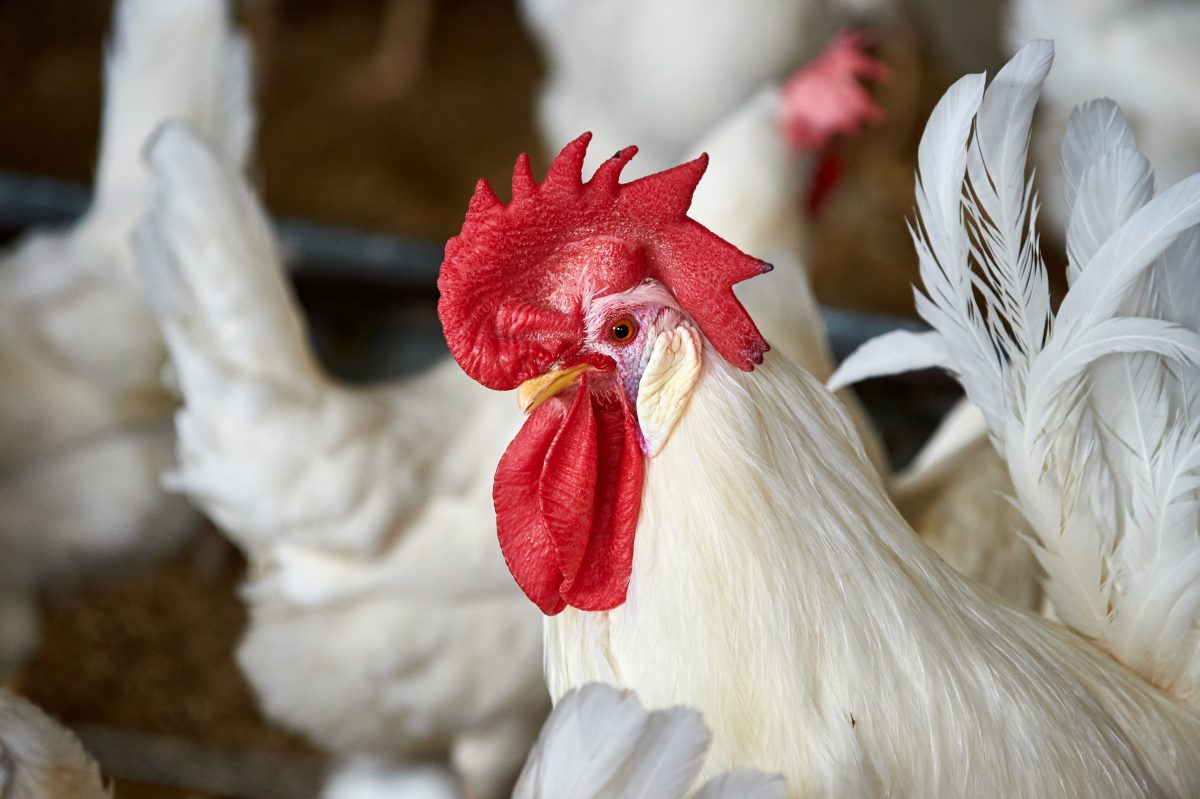Avian influenza was recently confirmed in one backyard non-poultry flock in Connecticut. The Connecticut Veterinary Medical Diagnostic Laboratory (CVMDL), part of UConn’s College of Agriculture, Health and Natural Resources tested the birds in cooperation with the Connecticut Department of Agriculture (CT DoAg) and the USDA Animal and Plant Health Inspection Service (APHIS).
Avian influenza (AI) is a virus of birds – this includes domestic and wild birds. The virus naturally occurs in birds and is also referred to as bird flu. The challenge is that avian influenza can spread to other animals and may mutate. This can be devastating to bird owners and those with agricultural operations.
Surveillance and testing are ongoing in Connecticut to quickly identify and contain any future cases that could affect the more than five million birds in the state.
“The CVMDL is currently deploying its testing resources to rapidly detect and monitor the current outbreak of highly pathogenic avian influenza. As with our other work, the CVMDL is closely coordinating with our partners, the Office of the State Veterinarian at CT DoAg and USDA-APHIS Veterinary Services, to help the residents of our state address this challenge” says Guillermo Risatti, director of CVMDL.
The AI strain that is currently circulating in this region is highly pathogenic, but the current public health risk is low. While it is possible for mutated influenza viruses to infect humans, causing a public health crisis, there are also strict protocols in place for preventing any infected foods and by-products from reaching consumers.
The CVMDL conducts all tests at the laboratory in Storrs and informs the state veterinarian about the results. With this current outbreak and others, the CVMDL is on the front lines of research and testing to keep humans and animals safe. Disease diagnostics and monitoring is one part of their work. Visit the CVMDL site for more information on avian influenza testing.
Information for Non-Poultry Owners
• All residents should stop feeding wild birds until further notice. Wild birds, particularly aquatic birds, are carriers of the disease and spread avian influenza to other birds.
• Those with chickens, ducks, and turkeys should take precautions to prevent their birds from coming into contact with wild birds. Visit the Department of Agriculture site for more information on precautions.
• Avian influenza symptoms include coughing and sneezing, fewer or misshapen eggs, depression, and decreased feed and water consumption. Bird owners must report any avian influenza symptoms to the State Veterinarian at 860-713-2505 or ctstate.vet@ct.gov. Testing for commercial and non-commercial flocks is available at no cost to avian owners through the CVMDL – all submissions must go through the State Veterinarian.
• Report wild bird deaths to the State Veterinarian at the Connecticut Department of Agriculture.
• Do not bring any birds into Connecticut from out of state.
• Avian influenza does not present a public health concern at this time. Food in our grocery stores adheres to strict food safety standards. Cooking non-poultry and eggs to 165 degrees Fahrenheit kills all viruses and bacteria.
• Biosecurity resources for non-poultry flocks are available from the USDA APHIS site, and checklists are available in five languages. Biosecurity measures include wearing personal protective equipment, cleaning, and disinfecting, not sharing tools, and avoiding shared water sources with wild birds, among other precautions.
For more information, read the APHIS release about the confirmed Connecticut cases on March 2, 2022.
The CVMDL is a USDA National Animal Health Laboratory Network (NAHLN) member. NAHLN is a network of laboratories that can respond quickly to disease events like this current highly pathogenic avian influenza (HPAI) outbreak. In that capacity, the CVMDL serves the State of Connecticut and the USDA-APHIS in the entire New England region. The CVMDL is the only NAHLN laboratory in this region of the country.
Follow UConn CAHNR on social media



